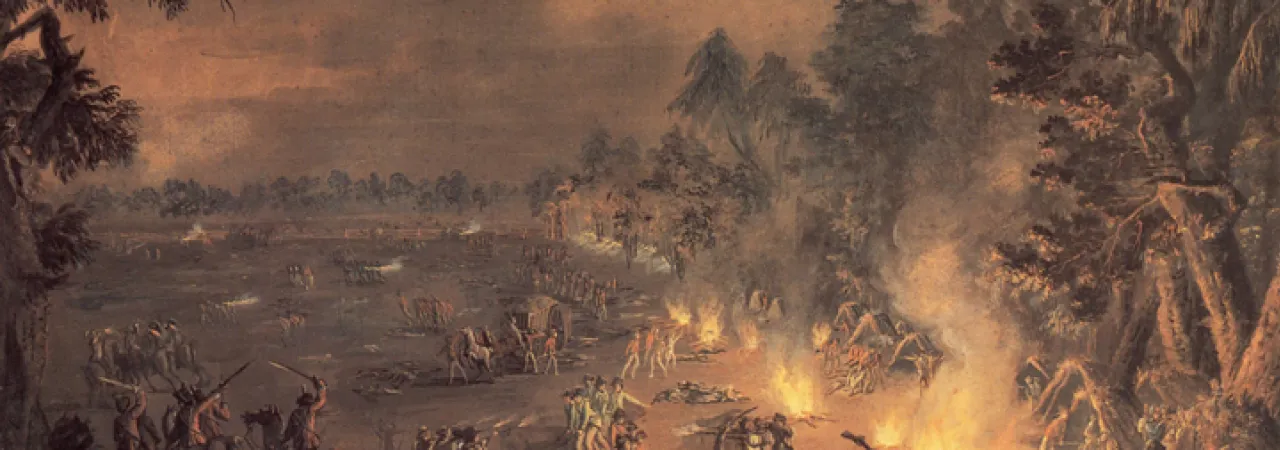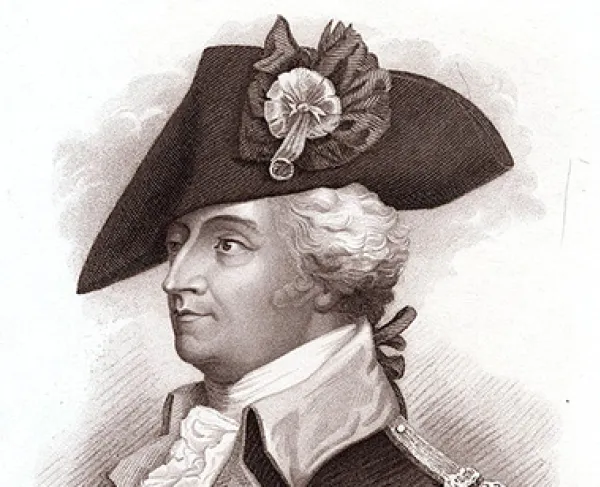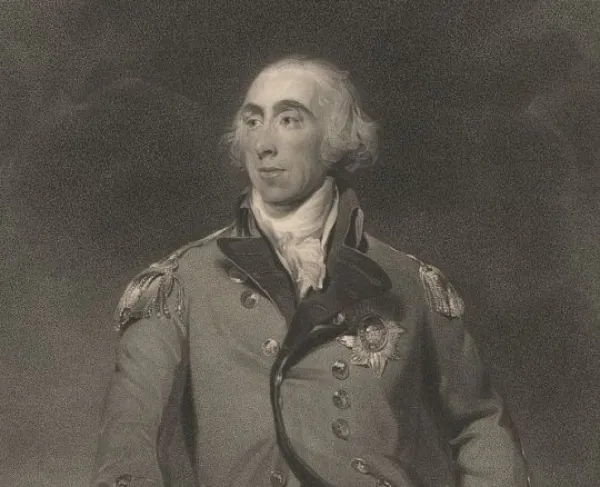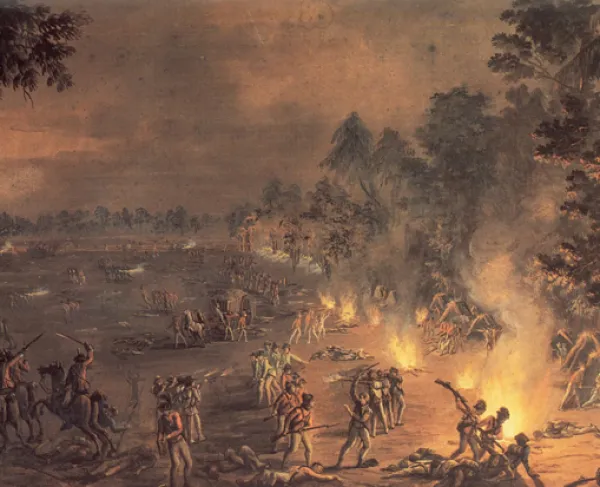
Paoli
Paoli Massacre
Pennsylvania | Sep 20, 1777
On the night of September 20, 1777, one of the most infamous events of the American Revolution took place: the Battle of Paoli sometimes referred to as the Paoli Massacre. While only 53 Americans perished in the nighttime British surprise attack, Patriot propagandists were able to vilify the tactics employed by the British, who cut men down with bayonets.
After the American defeat on September 11 at Brandywine Creek, British General Sir William Howe’s forces occupied the American capital at Philadelphia. Washington needed to keep his army close to Philadelphia to monitor British activity. Because the Continental Army was chronically short on provisions and supplies, Washington also needed access to the supplies stored at Reading, Pennsylvania. Because of this, Washington positioned his army between Philadelphia and Reading, fifty miles to the Northwest, dividing his forces and posting units on both sides of the Schuylkill River just north of Philadelphia. He gave orders to General “Mad” Anthony Wayne, encamped near Chester, Pennsylvania, to keep pressure on the British by harassing them at every opportunity and to attempt to capture their supplies. Wayne made the mistake of believing his forces were undetected by the British, an oversight that would cost him dearly.
British intelligence determined that Wayne’s forces were encamped near the General Paoli Tavern near present day Malvern, Pennsylvania. Wayne also made the mistake of leaving his camp exposed. At 10 pm on September 20, 1777 British troops under Major General Charles Grey pounced on the unsuspecting Americans. Grey had ordered his men to unload their muskets, and remove their flits, to ensure total surprise. The British would rely solely on the bayonet for their business that night.
Grey's men took the American camp totally by surprise, emerging from the woods that hid their movements. American’s fled in panic and the encampment was destroyed as the British went about their bloody work. Wayne’s entire division was routed, losing 272 men, most of them taken prisoner. Because the British did not have flints in their muskets, Grey was dubbed, “No Flint” Grey.
Wayne was brought up on charges of misconduct, but was found not guilty by the first investigation into the event, although he was deemed to have made a tactical error. The mercurial Wayne argued for a full court martial to exonerate him. The court martial determined that Wayne had acted with honor.
Eyewitness accounts by Continental soldiers engaged in the surprise attack fanned the fuel of American propagandists, telling tales of how as men tried to surrender they were given no quarter. “I with my own eyes,” wrote Lt. Colonel Adam Hubley of the 10th Pennsylvania Regiment, “see them, cut and hack some of our poor men to pieces after they had fallen on their hands and scarcely shew the least mercy to any…” “The annals of the age cannot,” reported Major Samuel Hay of the 7th Pennsylvania Regiment, “produce another such scene of butchery…”
Wayne would have his revenge later when he stormed the ramparts of Stony Point, New York exhorting his men to “Remember Paoli” and returning the favor on the British.
All battles of the Philadelphia Campaign
Related Battles
2,500
1,200
272
11





